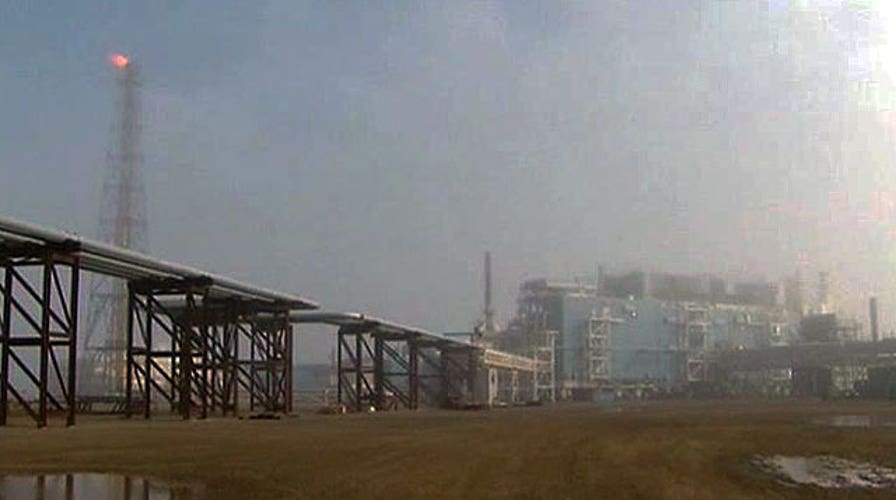America's oil boom has the Texas tea flowing, whole new towns being built in North Dakota and, for the first time in decades, the U.S. producing more crude than it imports. But Alaska, a state known for its vast oil resources and pro-drilling politics, is being left in the dust of this new oil surge.
The state, with its 800-mile pipeline running from the North Slope to Valdez, has fallen to fourth among oil-producing states, now trailing Texas, North Dakota and California. It's not sitting well with many there.
"There's definitely a hit to the state pride," said Alaska Department of Natural Resources Commissioner Joe Balash. "There's a certain amount of embarrassment that a place as over-regulated and over-taxed as California is eclipsing Alaska."
Production in Alaska peaked in 1988 when companies sent 2.1 million barrels of oil per day down the pipeline. Declining ever since, last year production hit a low of 526,000 barrels per day.
Everyone agrees that part of the decline is due to the natural cycle of oil field drilling. Prudhoe Bay, on Alaska's North Slope, is still the largest oil field ever discovered in the U.S. But nearly 40 years of drilling has diminished the supply of easy-to-get oil.
To date, 16 billion barrels of oil have been squeezed out of the North Slope. But officials believe the end is far from over. It's estimated there's still 10 billion barrels of oil in the ground.
So why aren't the oil giants Conoco Phillips, BP and others going after it? Here's where the great Alaska debate begins.
Republicans blame a progressive production tax which has been a windfall for the state's general fund in recent years, but which some argue chased away new development.
"The state of Alaska put together a very unfavorable tax structure," said Sarah Erkmann, a spokeswoman for the Alaska Oil and Gas Association. "For many years, Alaska was not an attractive place to do business."
In 2008, when the price of Alaskan crude shot up $35, to $96 per barrel, oil companies paid a record $6.8 billion in production taxes. The revenue has allowed the state to go on a spending spree and put $5 billion in a reserve fund. It's also built the state's Permanent Fund to $45 billion. This year, the fund paid every Alaskan $900.
The state, though, is almost totally dependent on oil taxes. There is no income or sales tax. Oil revenue accounts for 85 percent of the state's general fund.
The Republican-controlled Legislature passed a massive tax cut that will cost the state about $500 million a year. GOP Gov. Sean Parnell says the revenue hit will be temporary and should turn around the oil production decline.
"This tax change will drive billions more in investment, create more opportunities for our citizens and for America too," said Parnell.
But opponents call it an expensive giveaway to oil companies. They point out that oil jobs were added, even during the high-tax years, and the companies are still making huge profits in Alaska.
"Keeping a fair oil tax on the books was part of building a strong Alaska," said Democratic State Sen. Hollis French. "Our concern with [the bill] is that it was not tied to more oil company investment in the state."
A citizens group gathered enough signatures to put a referendum on the ballot next year. Alaskans will be able to decide for themselves if the tax cut is a good gamble for the state or just accelerating the drop in oil revenue.





